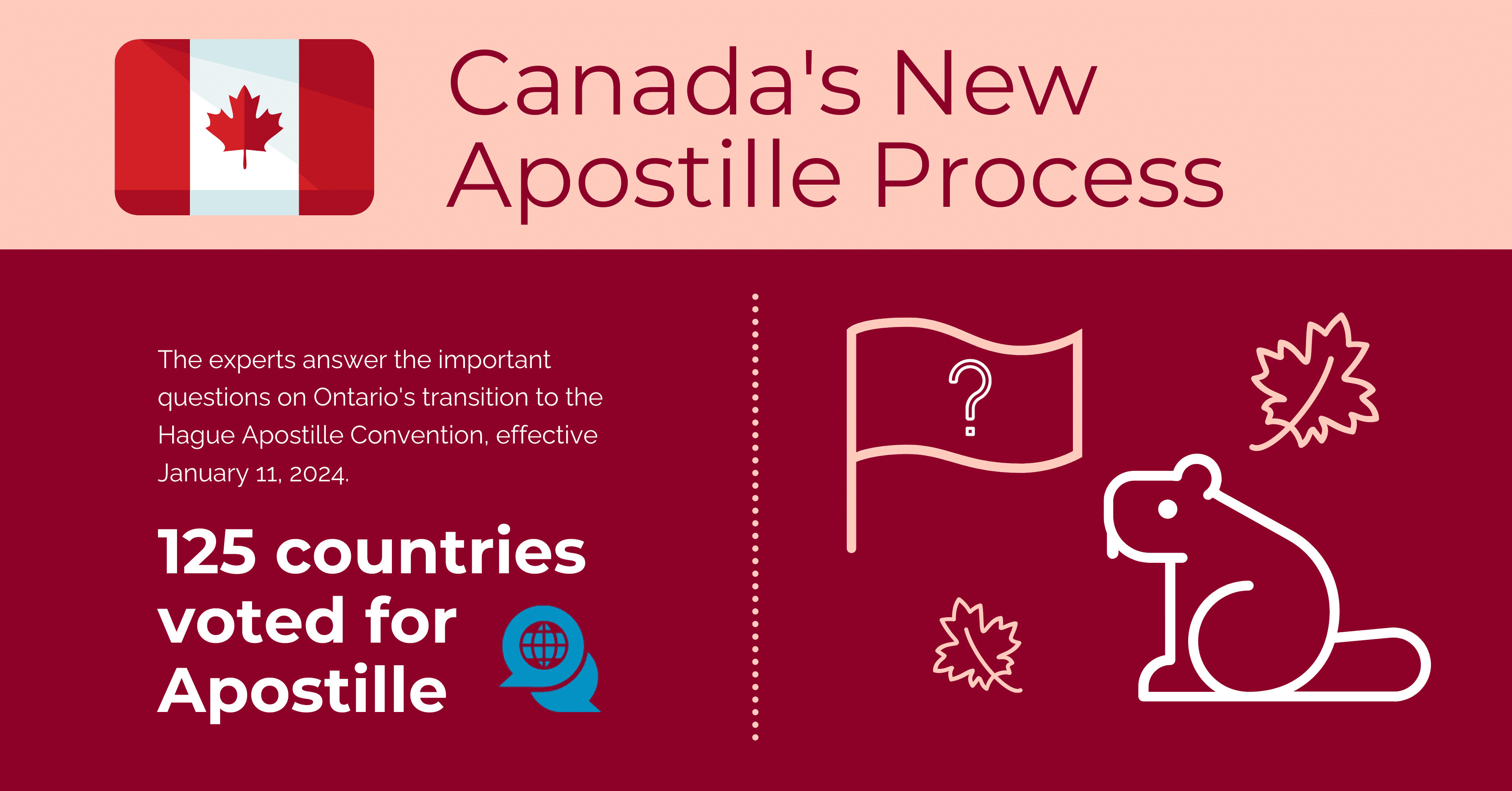
Canada and the Hague Apostille Convention: A Boon for Pharmaceutical Companies
Understanding the Hague Apostille Convention
What is the Hague Apostille Convention?
The Hague Apostille Convention, officially known as the Hague Convention of 5 October 1961 Abolishing the Requirement of Legalisation for Foreign Public Documents, is a significant international treaty. It was designed to simplify the authentication of documents that need to be used in foreign countries. The Convention achieves this by replacing the often complex and time-consuming process of legalization with a single formality, the issuance of an Apostille.
Importance of the Hague Apostille Convention
The Apostille Convention has dramatically enhanced international document exchange and cooperation. You might ask, how so? Well, it streamlines the bureaucratic process, eliminating the need for diplomatic or consular legalization of public documents. Imagine removing the tiresome layers of red tape – that's exactly what this Convention does!
Canada's Journey towards the Hague Apostille Convention
Historical Overview
Interestingly, Canada, despite being an active member of the Hague Conference on Private International Law, had not joined the Apostille Convention until recently. This created various complications for individuals and entities trying to use Canadian documents overseas.
Canada's Recent Decision to Join
Canada's decision to join the Hague Apostille Convention is undoubtedly a ground-breaking move. It signifies Canada's commitment to simplify the process of international document recognition, which, in turn, promotes international commerce and personal matters alike.
Implications for the Pharmaceutical Industry
The Role of Health Canada Certificates
Health Canada Certificates, especially Good Manufacturing Practices (GMP) certificates, are crucial documents for pharmaceutical companies. They certify that a company adheres to the guidelines that ensure the proper monitoring and control of manufacturing processes and facilities, thereby ensuring the production of high-quality, safe, and effective pharmaceutical products.
Benefits of the Hague Apostille Convention for Pharmaceutical Companies
Streamlined International Operations
With Canada's inclusion in the Convention, pharmaceutical companies can now validate their Health Canada Certificates internationally with less hassle. Remember the layers of red tape? They're significantly minimized, leading to smoother international operations.
Enhanced Trust and Global Recognition
Apostilled Health Canada Certificates will be globally recognized and accepted. The increased trust will make Canadian pharmaceutical products more attractive to international markets. Think of it as a global seal of approval for your products!
Cost and Time Efficiency
Without the need for lengthy authentication processes, pharmaceutical companies can save both time and money. Efficiency is the key, right? It's like being able to take a direct flight instead of a one with multiple stopovers!
Case Studies: The Real Impact on Pharmaceutical Companies
Case studies of pharmaceutical companies operating internationally demonstrate the tangible benefits of the Hague Apostille Convention. Companies are now able to streamline their international operations, reduce costs, and improve their global standing. It's like giving pharmaceutical companies a key to unlock doors around the world!
Conclusion Trust The Experts @ Global Document Solutions
Future Prospects for Pharmaceutical Companies in Canada
Canada's joining of the Hague Apostille Convention marks a significant milestone, particularly benefiting the pharmaceutical industry. By simplifying the international recognition of Health Canada Certificates, pharmaceutical companies are expected to witness increased global trust, cost and time efficiency, and smoother international operations. In essence, this move is setting the stage for a brighter, more global future for Canada's pharmaceutical industry.
Frequently Asked Questions
1. What is the Hague Apostille Convention?
- The Hague Apostille Convention is an international treaty designed to simplify the authentication of documents that need to be used abroad.
2. How does Canada's joining the Hague Apostille Convention affect the pharmaceutical industry?
- With Canada joining the Convention, the process for international recognition of Health Canada Certificates becomes simpler, thereby benefiting pharmaceutical companies in several ways including improved global recognition and trust, cost and time efficiency, and streamlined international operations.
3. What is a Health Canada Certificate?
- Health Canada Certificates, such as Good Manufacturing Practices (GMP) certificates, are documents certifying that a pharmaceutical company adheres to guidelines that ensure proper monitoring and control of manufacturing processes and facilities.
4. How does the Hague Apostille Convention enhance global trust in Canadian pharmaceutical companies?
- The Convention ensures that Apostilled Health Canada Certificates are globally recognized and accepted, which increases trust and makes Canadian pharmaceutical products more attractive in international markets.
5. What are the benefits of the Hague Apostille Convention to the pharmaceutical industry?
- The Convention streamlines international operations, enhances global recognition and trust, and leads to cost and time efficiency for pharmaceutical companies.

